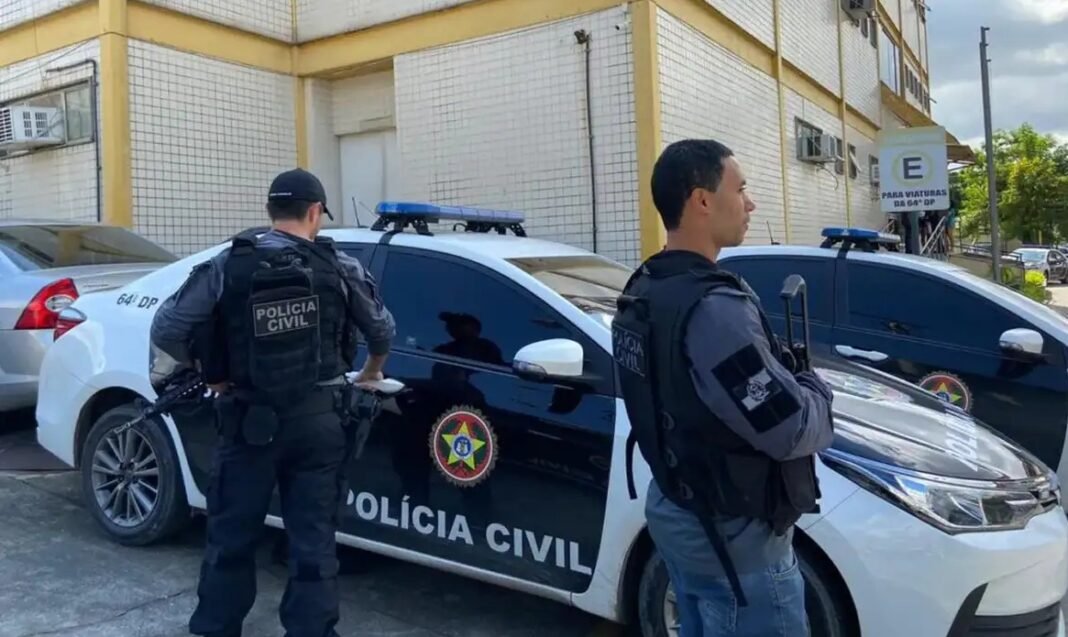The Rio de Janeiro State Legislative Assembly (Alerj) approved on Tuesday (23/09) an amendment to a bill that provides cash bonuses for civil police officers who kill suspects during operations. The amendment, introduced by deputies aligned with Governor Cláudio Castro (PL), was attached to a broader bill restructuring positions and career paths within the Civil Police. According to the approved text, officers will be entitled to a minimum bonus of 10% and a maximum of 150% of their salary for the seizure of large-caliber or restricted-use weapons in operations, “as well as for the neutralization of criminals.”
This Content Is Only For Subscribers
To unlock this content, subscribe to INTERLIRA Reports.
Governor’s Approval
The measure approved by state deputies creates a “cash bonus for special merit” ranging from 10% to 150% of a civil police officer’s salary. It is awarded for the seizure of large-caliber or restricted-use weapons in police operations and for what the text calls the “neutralization of criminals.” For the proposal to become law, it must still receive approval from Governor Cláudio Castro, who has 15 days to either sanction or veto it. Lawmakers have already signaled an intention to expand the proposal to the Military Police, which is expected to be debated in the legislature next week. If approved, this could significantly broaden the scope of financial incentives tied to lethal confrontations with suspects.
“Wild West Bonus”
The so-called “Wild West Bonus” is not unprecedented in Rio de Janeiro. It was first implemented in 1995 under then-Governor Marcello Alencar (PSDB). At the time, a study conducted by the Institute of Religious Studies (Iser) in partnership with Alerj revealed a stark rise in the lethality of police operations. Before the introduction of the bonus, confrontations between police and civilians resulted in two deaths for every injured person. After the policy was enacted, the rate increased to four deaths for every person injured. Due to the sharp escalation in police lethality, Alerj voted to terminate the bonus program in 1998, only three years after it began.
Deaths Due to State Intervention
The debate over the new proposal comes against the backdrop of persistently high levels of police-related fatalities in Rio de Janeiro. In 2024, the state recorded 703 deaths caused by interventions of state agents, an average of 1.9 deaths per day, according to the Public Security Institute (Isp). In 2023, the figure was even higher, with 871 deaths recorded, and in 2022 the number peaked at 1,330. Human rights organizations and public security experts warn that reintroducing a financial reward system tied to lethal outcomes risks exacerbating an already alarming pattern of police lethality in the state.
Analysis:
The recent approval by the Rio de Janeiro State Legislative Assembly (Alerj) of a bill amendment providing cash bonuses for police officers who “neutralize criminals” marks a concerning step backward in public security policy. Historical experience with similar programs, known as the “Wild West Bonus,” demonstrates a direct correlation between financial incentives and increased police lethality. In the mid-1990s, such a policy doubled the death rate in police confrontations, leading Alerj to terminate the program after only three years due to its deadly consequences.
From a public security perspective, linking compensation to lethal outcomes creates a perverse incentive for officers to prioritize fatal confrontations over preventive measures, negotiation, or non-lethal interventions. This approach risks escalating violence in vulnerable communities and undermining trust in law enforcement.
Expanding such a program to include the Military Police would likely intensify these risks. Rather than reducing crime, it could exacerbate violence, destabilize neighborhoods, and heighten social tensions.
Sources: O Globo [1], [2]; G1; Extra; A Folha de SP.




